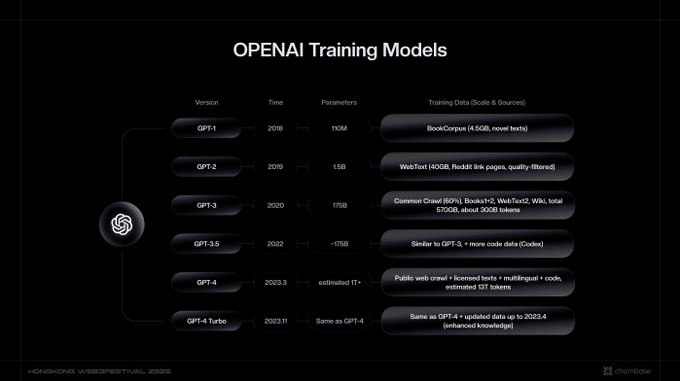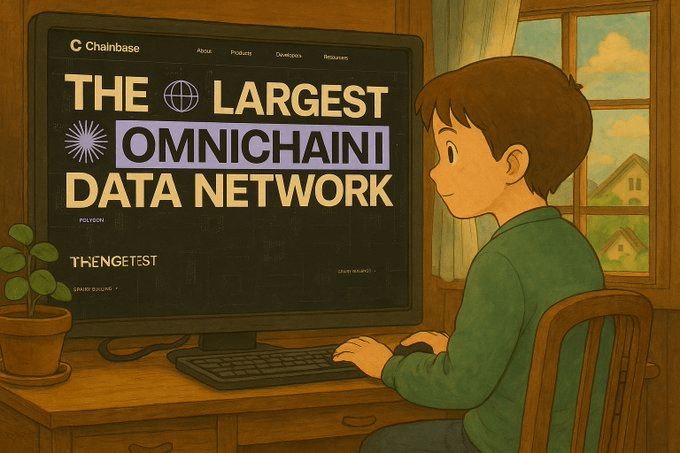As someone who has been navigating the Web3 world for many years, I have witnessed too many projects rise and fall. From the initial wild era to the subsequent technological explosion, we seem to have gotten used to being bombarded with new concepts and terms every day. But honestly, there aren't many projects recently that have truly impressed me or made me willing to spend an entire afternoon diving deep into research.
Chainbase is one of them.
I don't want to discuss those complicated official statements with you today, like 'one-stop Web3 data infrastructure', which just makes me want to doze off. I want to talk in a more 'human' way about why I believe the Chainbase project is worth the attention of every Web3 player—whether you are a developer, investor, or an ordinary user.
We live in a Web3 world of 'data islands'.
Before we talk about Chainbase, let's first ask ourselves a question: Is the Web3 we are currently engaged in really 'Web' enough?
Although blockchain data is public and transparent, they are essentially like isolated data islands. Ethereum, BNB Chain, Solana... each ecosystem has its own language and rules. Do you want to know the changes in holders of an NFT series across different chains? Or do you want to track the capital flow of a DeFi whale across various protocols?
If you have tried it, you will understand that pain. You need to call APIs from different chains, clean, organize, and analyze the data yourself, which not only requires a very high technical threshold but is also inefficient; by the time you analyze the results, it's already too late.
We live like we are in beautifully decorated rooms, but there are no doors between the rooms, only small windows that require passwords and keys to open.

Chainbase, the craftsman trying to 'install doors' for all the rooms.
What Chainbase wants to do is to be the craftsman who installs doors for all our rooms. It is building a huge data network that connects these isolated data islands, enabling data to flow and interact freely.
This might still sound a bit abstract, let me give you a specific example:
Not long ago, I saw a friend from an NFT project complaining in the community that in order to track the real holders and trading situation of their project's NFTs, their engineers were struggling daily in the hell of 'data scraping'. It wasn't until they used Chainbase that the situation changed.
They found that they could see the distribution, trading depth, and even the on-chain profile of their NFT holders across different chains in real time and clearly with just a few simple SQL queries. This enabled them to empower the community more precisely and even anticipate potential market risks in advance.
This story has greatly impacted me. A good tool can truly liberate productivity, allowing creators to focus on creation itself rather than being bound by tedious underlying work.

Data + AI, Chainbase's ambition goes beyond 'connecting'
If 'connecting data' is the front side of Chainbase, then its back side—data + AI—excites me even more.
We all know that AI is the big trend for the future, but what is the 'nourishment' for AI? It is high-quality, structured data. What Chainbase is doing is 'translating' the chaotic, raw on-chain data into a language that AI can understand.
The AI assistant Theia it launched is like an on-chain data analyst that can understand 'human language'. You can directly ask it questions in natural language, such as: 'Help me find the meme coin addresses that traded most frequently on Uniswap V3 in the past 24 hours.'
Imagine, when this capability is available to every ordinary user, what changes will happen in the world of Web3?
Investment decisions: We no longer need to blindly chase prices or panic sell, but can discover truly valuable alpha through data insights.
Project analysis: We can more easily see through the essence of a project, its user activity and funding health will be clear at a glance.
Application innovation: Developers can use this processed data to create dApps that are smarter and more automated than we can currently imagine.
This is not just an efficiency improvement; it is a **'data democratization'**, empowering everyone to harness the power of data.

In conclusion: Why should we pay attention to infrastructure?
After all this discussion, you might feel that Chainbase is somewhat distant from us ordinary users, as it primarily serves developers.
But what I want to say is that the prosperity of an ecosystem often depends on how well its infrastructure is built. The reason we can enjoy convenient internet services today is because of countless 'behind-the-scenes heroes' like AWS and Google Cloud.
In the world of Web3, Chainbase is playing the same role. It is quietly paving the way for the next stage of explosion.
When data is no longer a barrier, and AI can seamlessly integrate with blockchain, a more open, smarter, and fairer Web3 era may truly begin.



